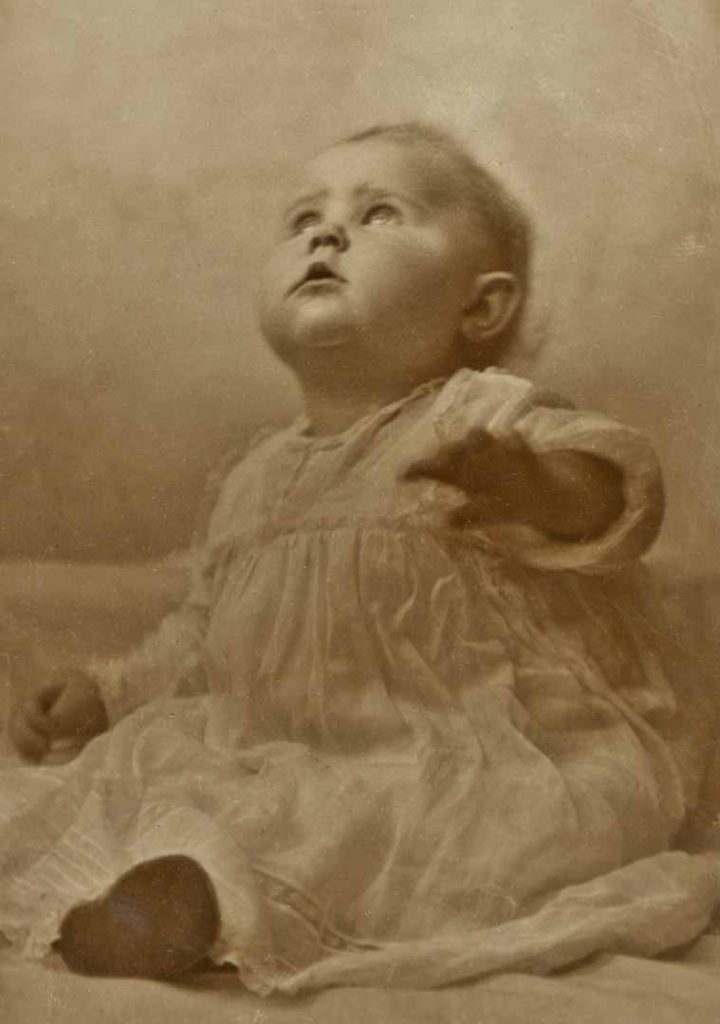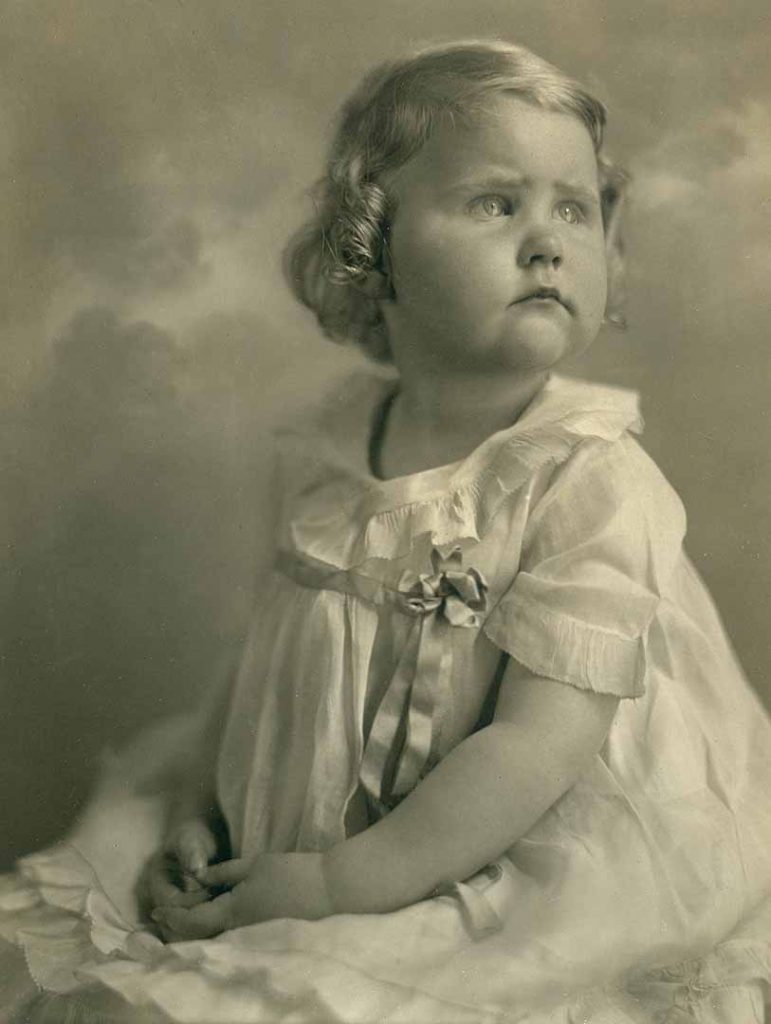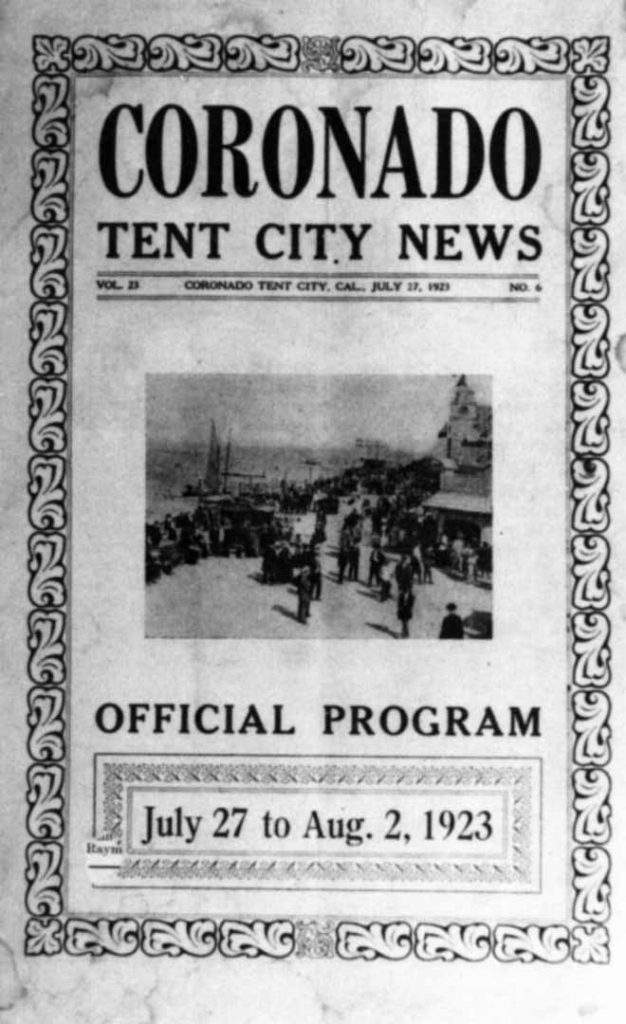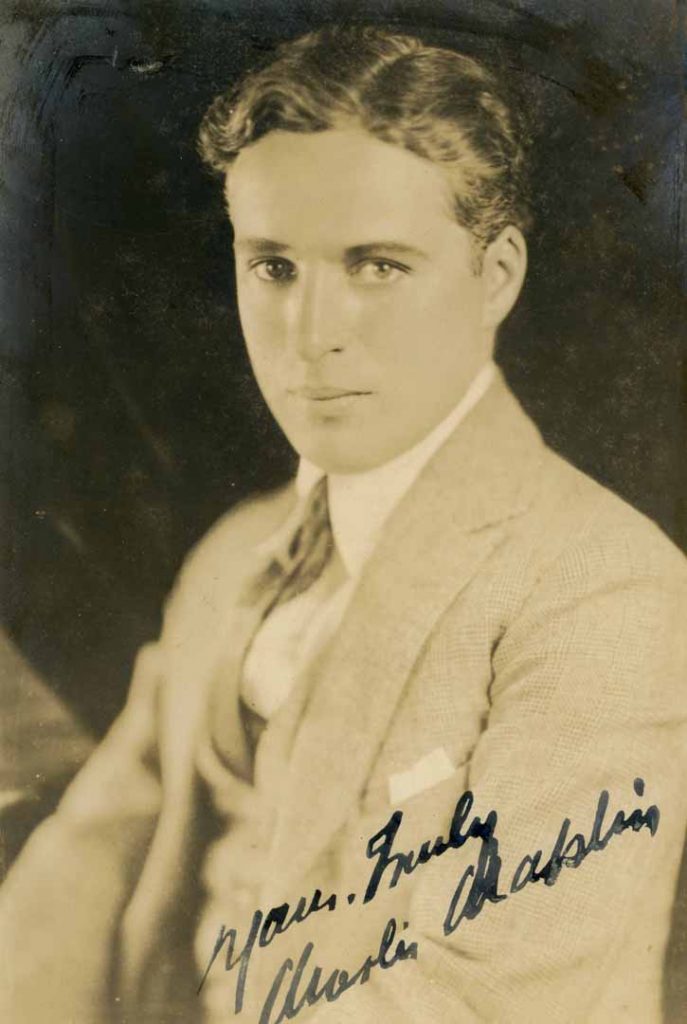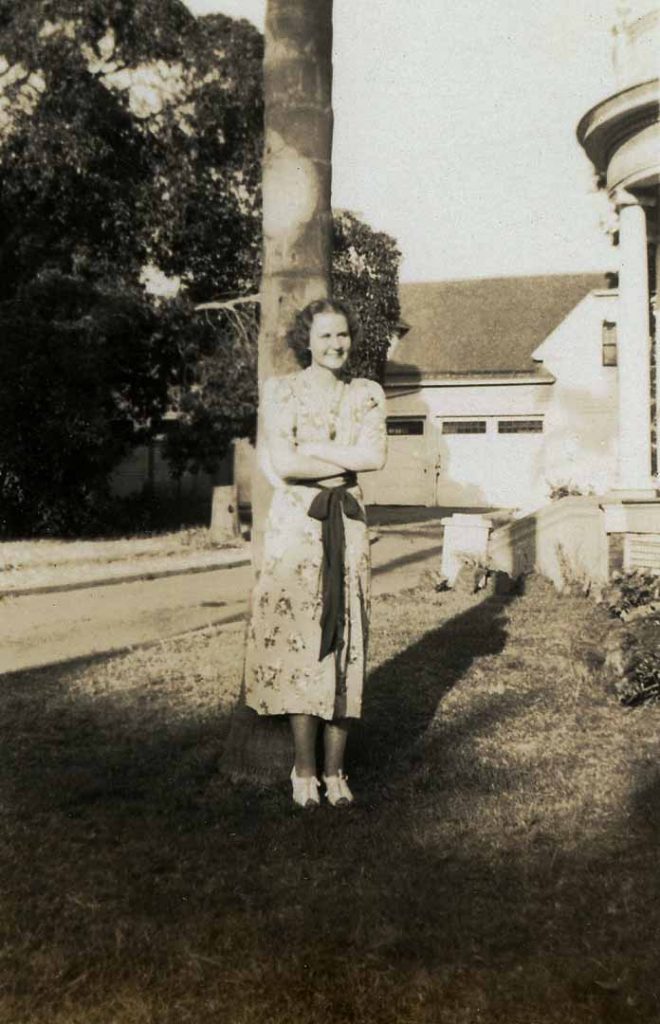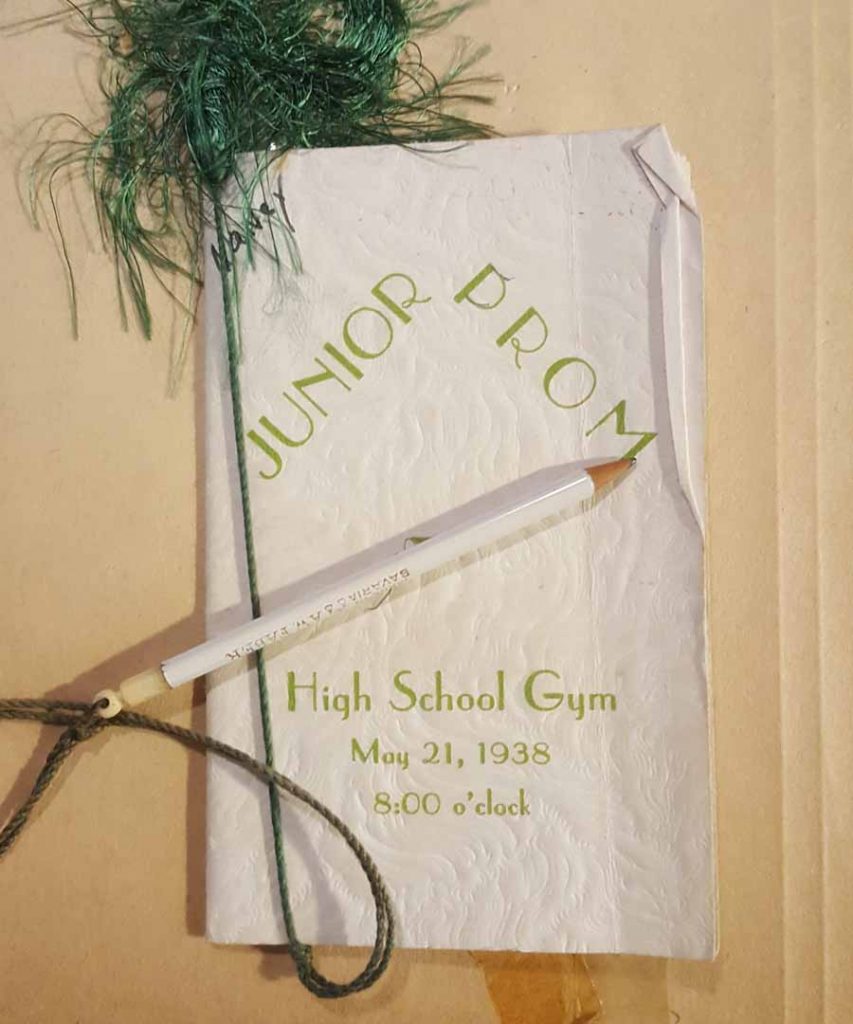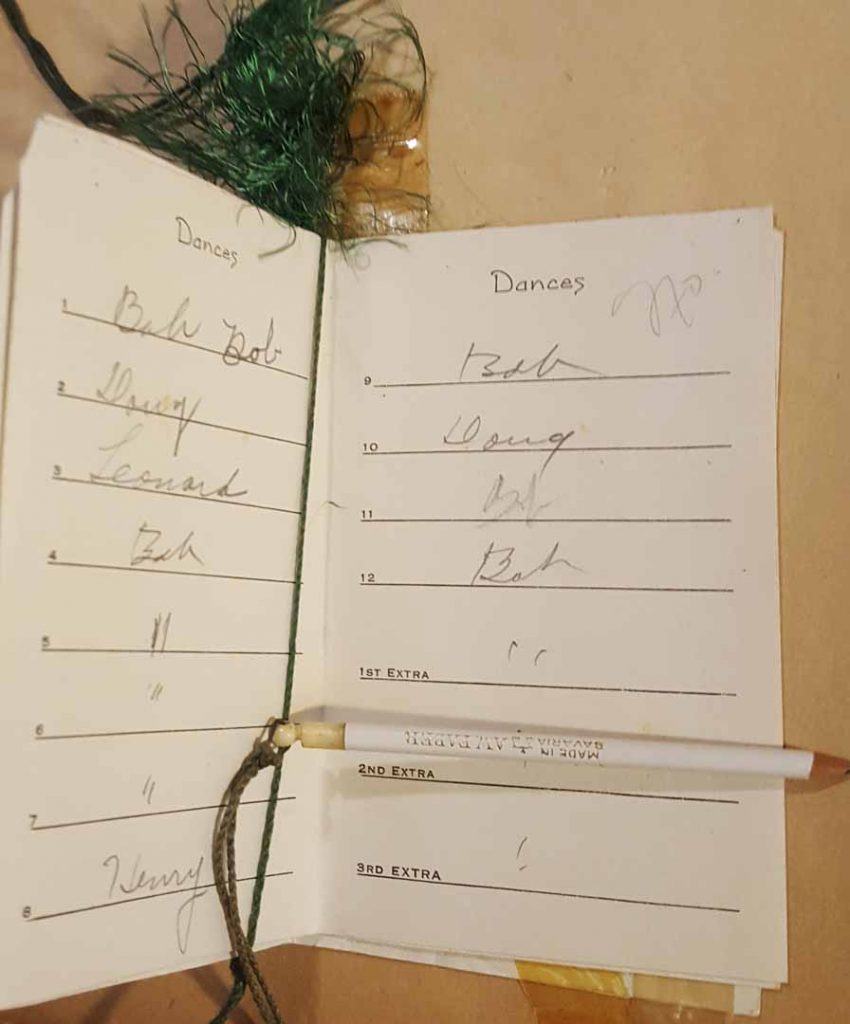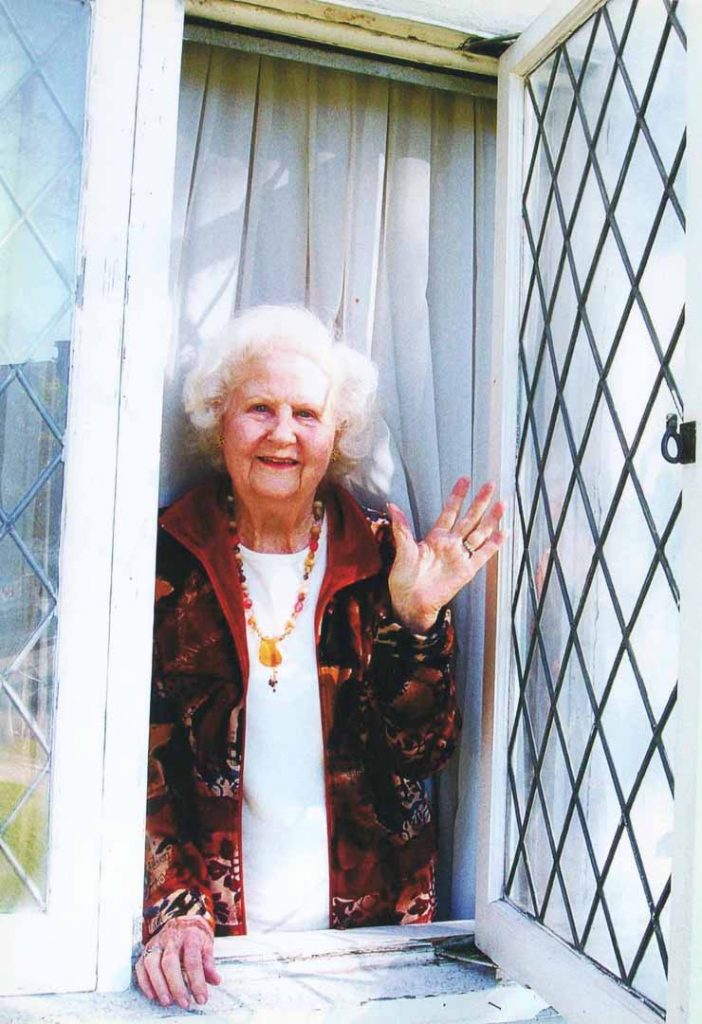
Nancy Crabill came to Coronado in 1922. Her life was woven throughout some of Coronado’s greatest history – ferries and trolleys, Tent City, the Japanese Tea Garden, the Hog Ranch, Fete of the Sun (1923); as well as some of this country’s biggest “moments” – the Great Depression, Prohibition, Charles Lindbergh’s around-the-world flight, and the attack on Pearl Harbor.
She died September 23 peacefully in her sleep, following a final battle with Alzheimer’s Disease. She died with her family nearby, which was all she ever wanted. She was 100 years old.
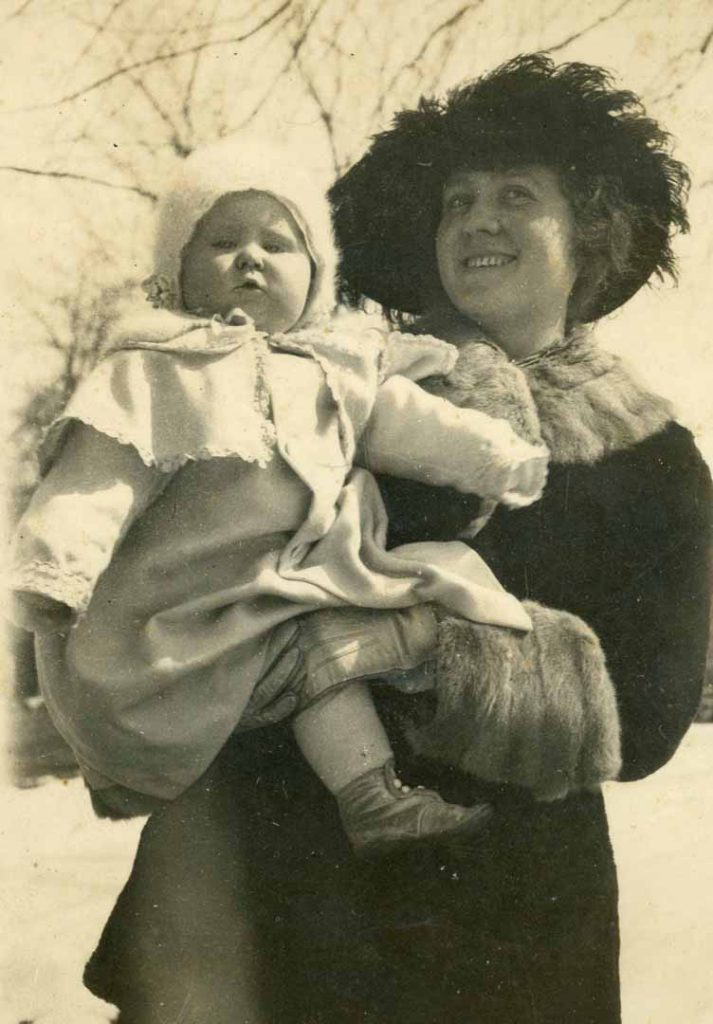
Nancy Blackwell Crabill was born May 12, 1918, in Carrollton, Illinois. Her parents were Joseph Minor Blackwell Jr. and Gladys Fern Sieverling. They were of Pennsylvania Dutch descent, arriving on these shores in 1830.
Music always played a role in Nancy’s life. Her parents met while her mother was attending the Boston Conservatory of Music (her father was the youngest cadet at the US Naval Academy at the time, 1906). Nancy’s mother taught piano to the daughter of Enrico Caruso, the great Italian tenor. This and much more, took place at the family home at 1115 Loma Avenue, where Nancy’s spirit still lingers.
Her first memory of Tent City (1900-1939) was taking swimming lessons in the outdoor, saltwater pool at the age of eight. She recalled clearly how it was located on the bayside of Coronado, surrounded by grandstands and four wooden floats reachable by gangplanks.
“I remember we kids would get out of the pool and be covered with brown scum. It was only cleaned once a week and sometimes the bay water pump would suck jellyfish and stingrays into the pool. That was always exciting.”
The ocean, the bay and all the critters found within became her personal recreation area and toys. As teenagers, she and her girlfriends would collect buckets of jellyfish and throw them at each other, covering the docks with the slippery and slimy mess.
She enjoyed the telling of how much fun Tent City was in the summertime, and in particular the outdoor theatre. For “one thin dime,” she could enjoy adventures on the big screen – in black & white and without sound, of course, with amazing imagery that introduced her to a world she previously could only read about. She clearly remembered how the audience sat on benches and the theatre was surrounded on all sides by heavy wire.
Concessions at Tent City offered everything from mechanical duck hunting to the “Dodge-em” cars that were powered by electricity. The kids would drive like crazy and ram each other. Today we call them bumper cars.
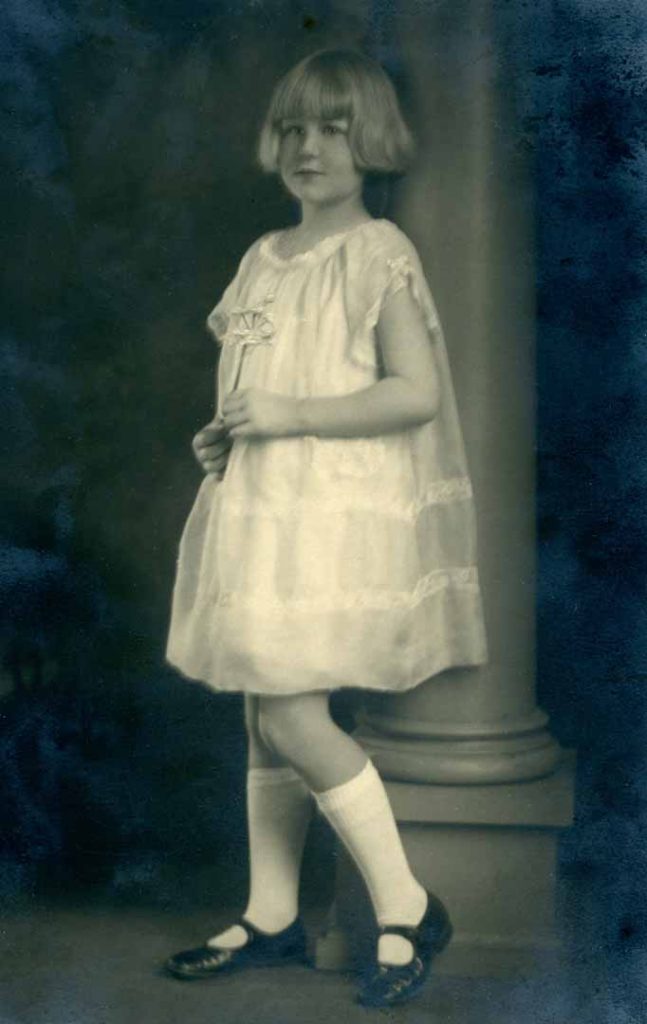
“I remember the skating rink. And my best friend’s parents owned the best hamburger place in Tent City,” she would say. “An orchestra played evenings and on weekends.” She paused to smile as her cheeks turned red. “I had the biggest crush on the saxophone player.”
She laughed while describing the trouble she got into as a young girl. “We lived right next to the Strand Theatre. They showed serials there like Tarzan and the ongoing adventures of cowboy Tom Mix. The player piano would accompany the silent films.”
Growing up in Coronado in the 1920s and 1930s was a different experience, to say the least. In those days the entire population of Coronado was only 3,000 people. A mother could yell for her child at one end of the island, and be heard on the other end. Without the density Coronado experiences today, sound traveled loud and far.
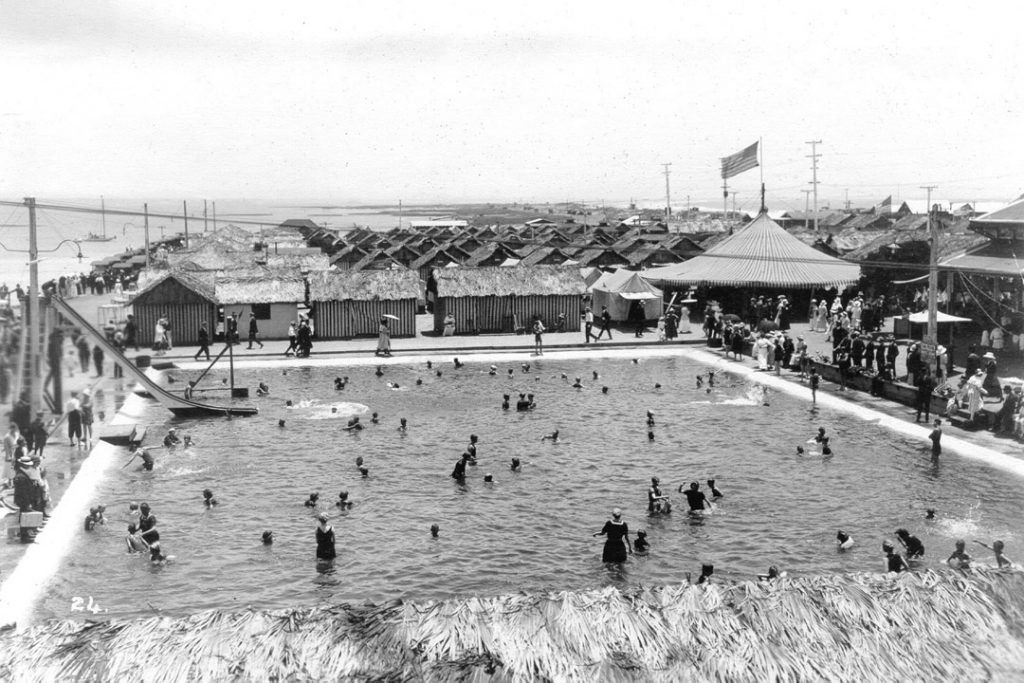
Early in Nancy’s life a tragic event took place that haunted her until her dying days. It was 1923 and she was four years old. Her father was walking down the front steps with a vat of boiling liquid when it ignited into flames.
From 1920-1933, the country was governed by Prohibition, a law that forbid the manufacture and sale of alcohol. As a result, people across the country were bootlegging gin from homemade stills, usually in their bathrooms. Nancy’s father was no exception. As he walked down the stairs he yelled at her to step away.
The contents of the vat exploded into flames that immediately engulfed him and all young Nancy could do was helplessly watch in shock. He fell to the ground and tried to smother the flames on the rug. He put out the flames, but his burns were too severe. He only survived a few more days. That sight, and seeing him in the hospital wrapped in bandages from head to toe, haunted her the rest of her life.
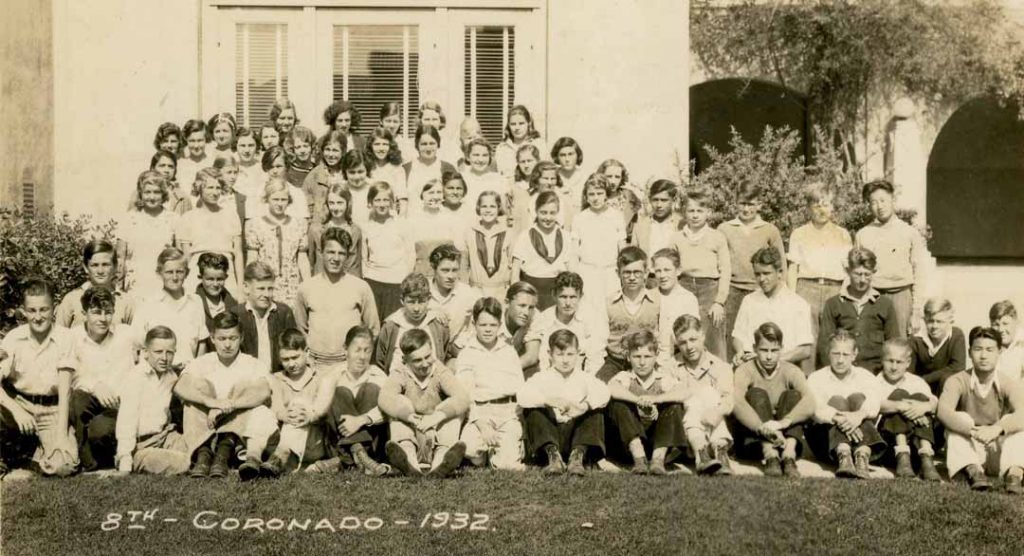
“We had only come to Coronado the year before,” said Nancy. “I can still remember the parties my folks had at the house. They would dance until 3 in the morning, playing records on the phonograph and drinking their homemade gin. Daddy died in July of ’23. I’m sad that this was my last memory of him.”
Her father had been the executive officer of the USS Regis, stationed in San Diego. The official notice in the newspaper said that he was, “killed in a house fire while cleaning his uniform.”
Nancy’s mother remarried in 1925, to Stanley Woodman. They built the home at 1115 Loma Avenue where Nancy would spend most of the rest of her life.
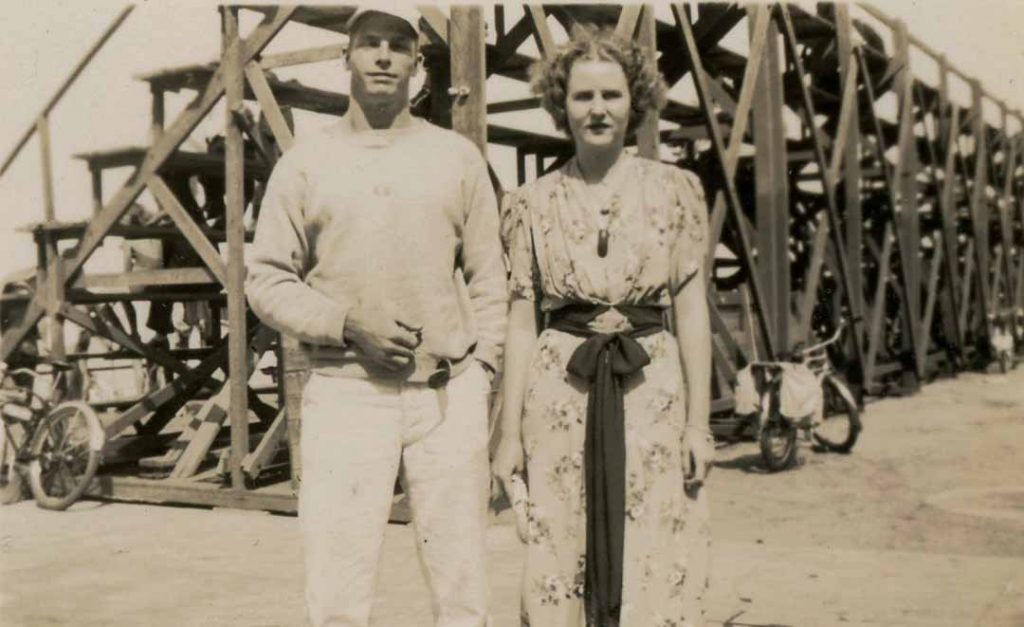
There was no lack of excitement in their home. Nancy recalled her stepfather “Woody” singing with Bing Crosby and George Raft over the loudspeaker to open the Del Mar Race Track. While Woody had his own crosses to bear, with alcohol and gambling, the family lived well.
Her childhood, in her own words, was mystical. She loved Coronado until her dying day. Fortunately, through a recording she kindly provided a local historian in 2007, at the age of 89, her youth is captured in her own lovely voice, with that very special laugh that today brings tears of joy to her children and grandchildren. In that sound recording she described the amazing events of her childhood.
As a young girl, Nancy and her best friend would tell their parents they were going to practice music (they played piano and violin). They would sneak out their best dresses, gussy up, and head to the Hotel Del to act like they were adult guests. They would sit in the lobby looking pretty, trying to act “older,” and watching for movie stars.
Today islanders crane their necks to catch a glimpse of actor Tom Cruise. But in the 1930s, Coronado was Hollywood-South. There were many A-List movie stars in Coronado in those days. “Oh my. I remember seeing and getting autographs from Warner Baxter, Delores Del Rio, Charlie Chaplain, Richard Ireland, George Raft. And then there was Clark Gable, but I could never catch him.”
Once she spotted the handsome star, she was unrelenting. One time she took her mother’s car and followed Gable in his car all over the island trying to get his autograph. One can only imagine what he thought, looking in his rearview mirror and seeing this cute and gangly blonde teenager, dogging his bumper around the island.
Speaking of cars, Nancy remembered how her stepfather Woody would take her down the Silver Strand to the old Hog Ranch (now the Coronado Cays), where he would let her steer his car around the dunes and piles of junk.
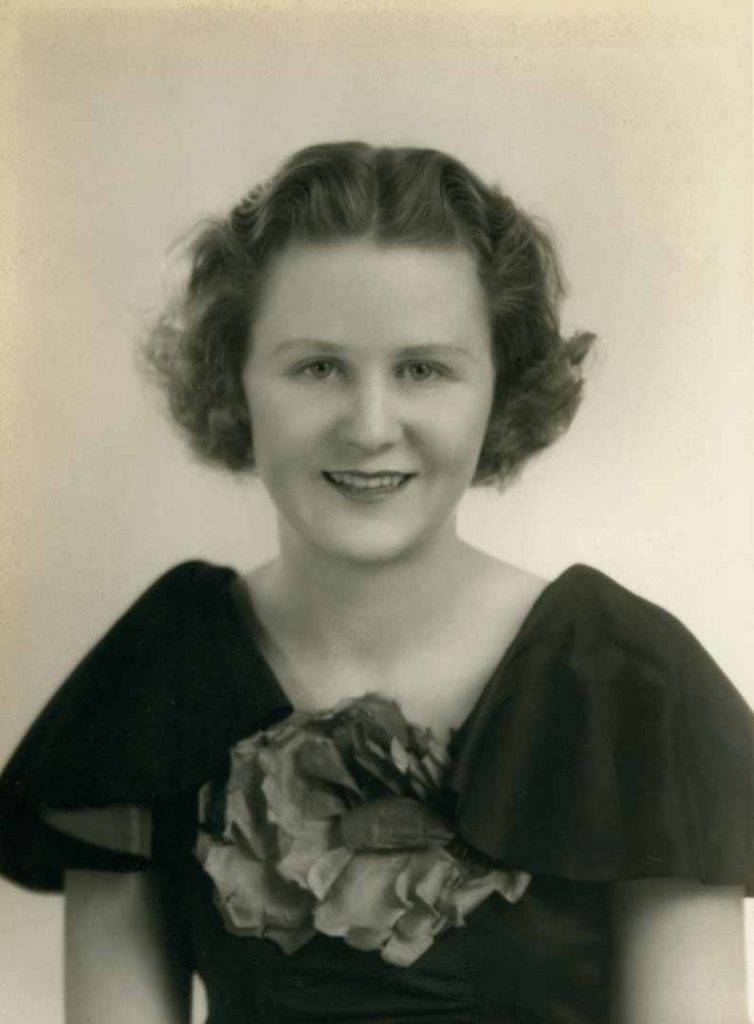
“Once, when no one was home, I got into his car and turned the key. I didn’t know about things like clutches, shifting and brakes. The car was in gear and it leapt forward, carrying me towards Orange Avenue. Cars and trolleys were racing back and forth. Just before I bound into the intersection I found the brake and stood on it with both feet. I remember there were well-meaning business owners running out from both sides to try and stop me. Forever more we called that car, ‘Leaping Lena.’”
The Hotel del Coronado was her home away from home as a young girl. She and her friends turned the Del into their private playground. Nancy took riding lessons at the Del Stables. They quickly discovered all the secret tunnels and passageways. They could go up on the roof and run from tower to tower without getting caught.
They discovered a passageway that led to a peephole directly above the Crown Room. She remembered how jealous she was looking down at her boyfriend, Dickie Moulton, taking dancing lessons, “and dancing with other girls!”
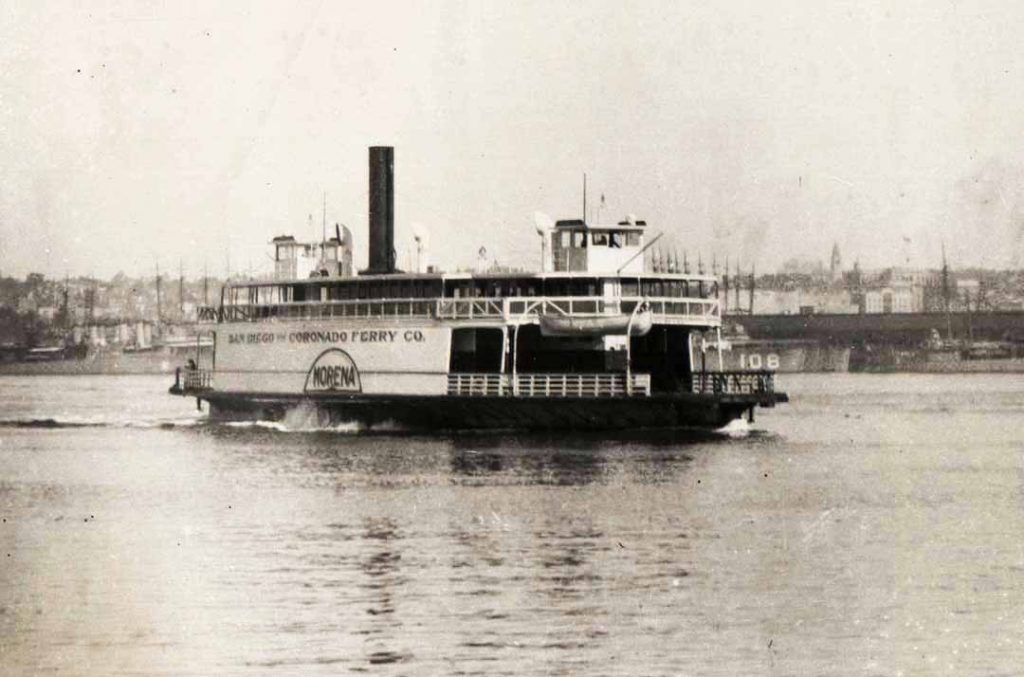
The car-carrying ferryboats provided endless entertainment to Nancy and her friends. “During the daytime we would pack a lunch and ride them upstairs all day long. Then, at night, it was a good necking place for my boyfriend and I. We would board the streetcar near my home at Orange and Loma, ride to the end of Orange, then board the ferryboat.”
Nancy graduated from high school in Coronado in 1937. She had attended Coronado schools from kindergarten on up. She attended Principia College for two years, majoring in liberal arts, but did not complete her studies.
Talking with Nancy Crabill was like opening a history book and having it talk back to you. She would aquaplane behind small powerboats from the Coronado Boat House. They would go deep into South Bay where military ships dumped their garbage.
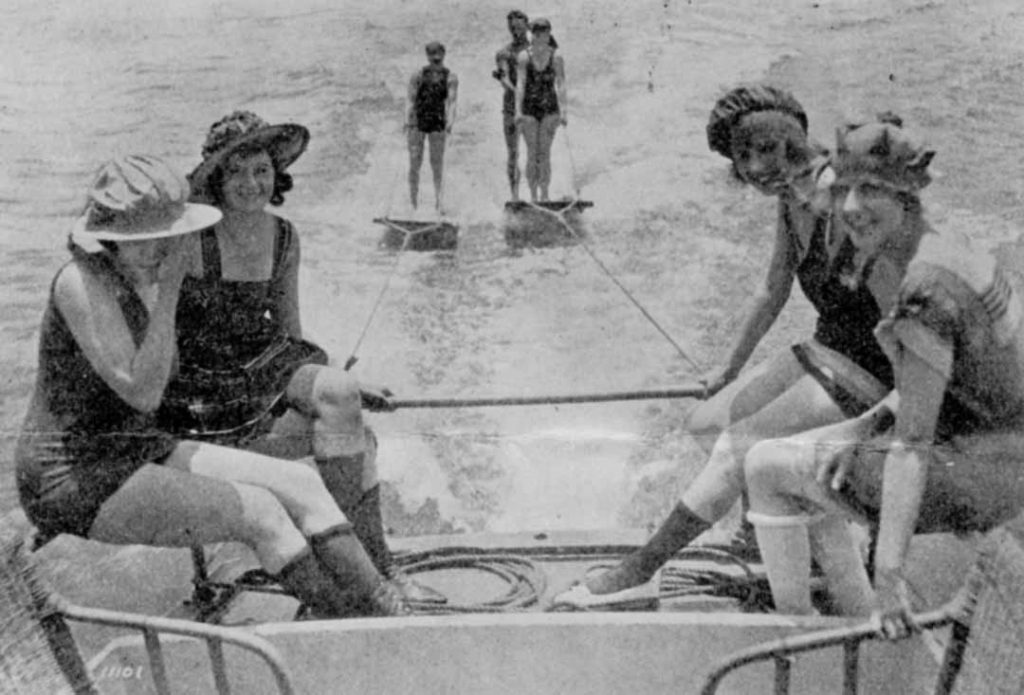
“I was always so afraid I would fall in the water while we were down there. Lots of porpoises hung out there to eat the garbage. I was convinced if I fell in they would eat me.”
Nancy’s childhood memories were the stuff dreams are made of. In today’s overcrowded and rapid-paced Coronado, she remembered the slow-moving train that came up the Strand and wound down through the Coronado Flats (Pomona and Glorietta area of town).
She recalled the old water tower that loomed over everything near Second Street and B Avenue. The Projects would soon be built down there and before World War II the Spanish Bight would be filled in, although she was adamant the Spanish Bight was a playground for little boys, not little girls.
She remembered many of her friends and neighbors had goats and chickens running around their property and in the street. In the Flats there were cows. Every morning she was awoken by a particular cow that walked past her house on Loma with a large bell around its neck. Funny what you remember about your youth when you grow older.
One of the greatest things about interviewing Nancy Crabill was how she would smile and laugh uncontrollably with that divine musical laugh of hers. Then she would blush a little and begin to talk about this boyfriend, or that boyfriend; or where their favorite necking spots were on the island – the Hog Ranch dunes, the upper deck of the ferryboats, the Del, the Tent City beach, the movie theatre.
She remembered grunion runs and how she and her friends would come home from midnight grunion hunts, with buckets filled with the wriggling little fish. “My mother would always fry them up for us, no matter what the hour.” She even recalled the Fete of the Sun in 1923, when all the school children dressed in white gowns to celebrate a total eclipse of the sun, and participated in maypole dances and parades around town.
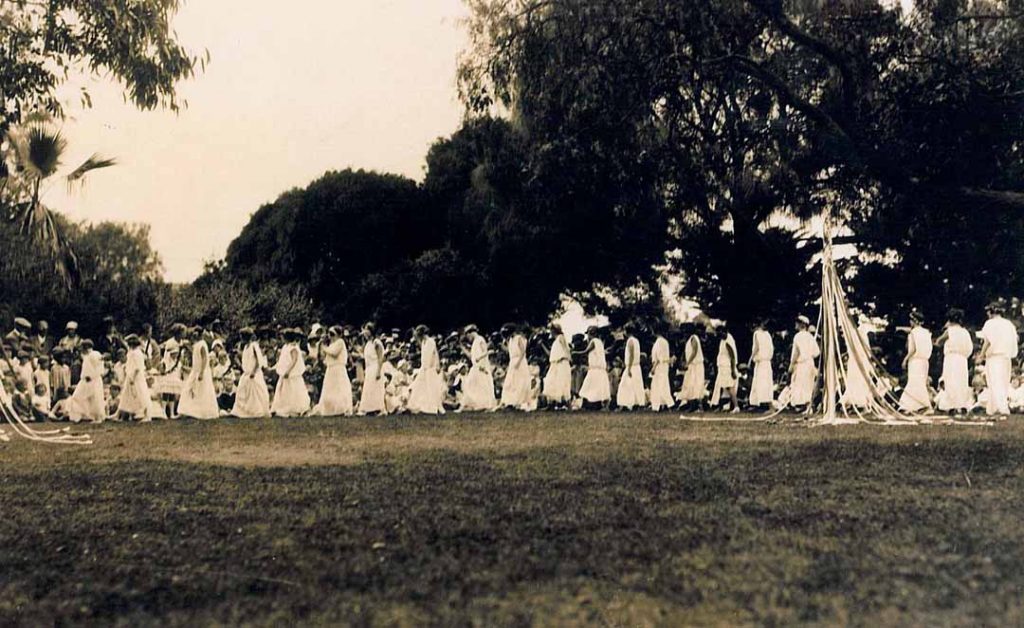
The great flood of 1926 took out most of Ocean Boulevard and caused a couple of homeowners to eventually move their homes inland and to San Diego. “Star Park was completely under water at one time.”
A long, thin strip of sand separated the ocean from the Spanish Bight (near where Dog Run is today). Nancy and her friends would often walk it all the way to the entrance to San Diego Bay. It was during one of those times she stood just a few feet from Charles A. Lindbergh as he boarded his airplane, the Spirit of St. Louis, waved to the crowd, and departed on his historic Atlantic crossing (1927).
Finally, she and her girlfriends would often spend the entire day at the Japanese Tea Garden, located between where the Glorietta Bay Inn and the US Post Office sit today. “It was all located on the property of Mr. Spreckels. They had a huge gong that greeted you upon arrival. We would hit that thing and giggle at how it trembled through our bodies.
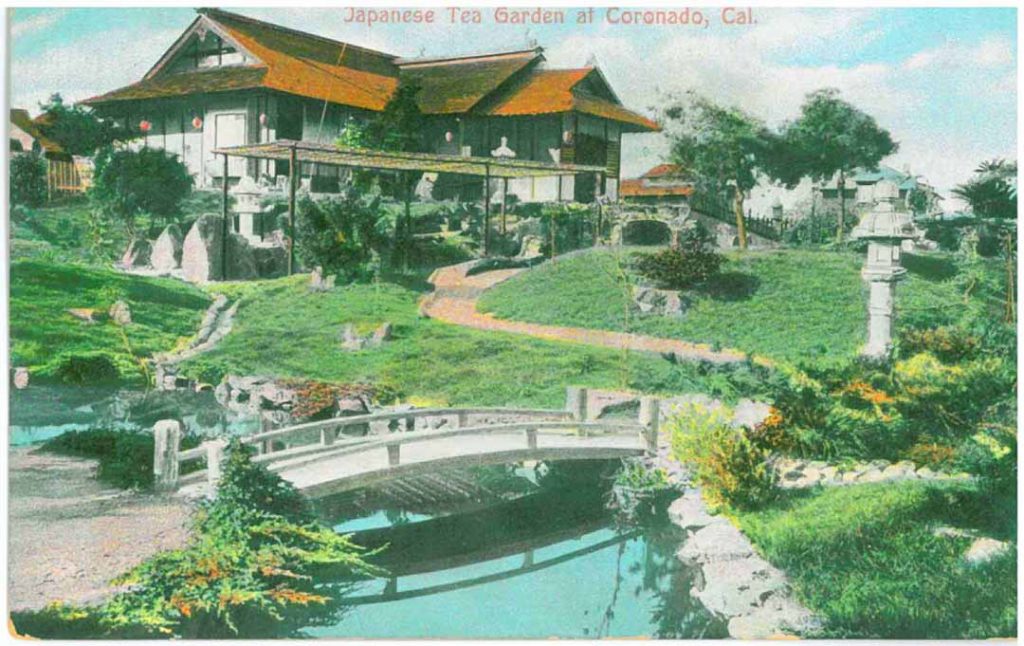
“It could be heard all over the island. Little bridges and streams led to small lakes filled with colorful fish. There were Geisha girls dressed in traditional garb, and they would serve you tea and cookies in the tea room. It was a really special experience for us, and one I’ll always cherish.”
At the outset of World War II, all things “Japanese” ceased to be popular in this country. The Japanese Tea Garden fell victim to that and eventually closed up.
Nancy met her husband Fritz at a party on Flora Avenue, in Coronado. In 1938 she was running with a navy crowd. They married in 1940. He was assigned to a fighter torpedo squadron aboard the USS Lexington at the time. They had a storybook marriage.
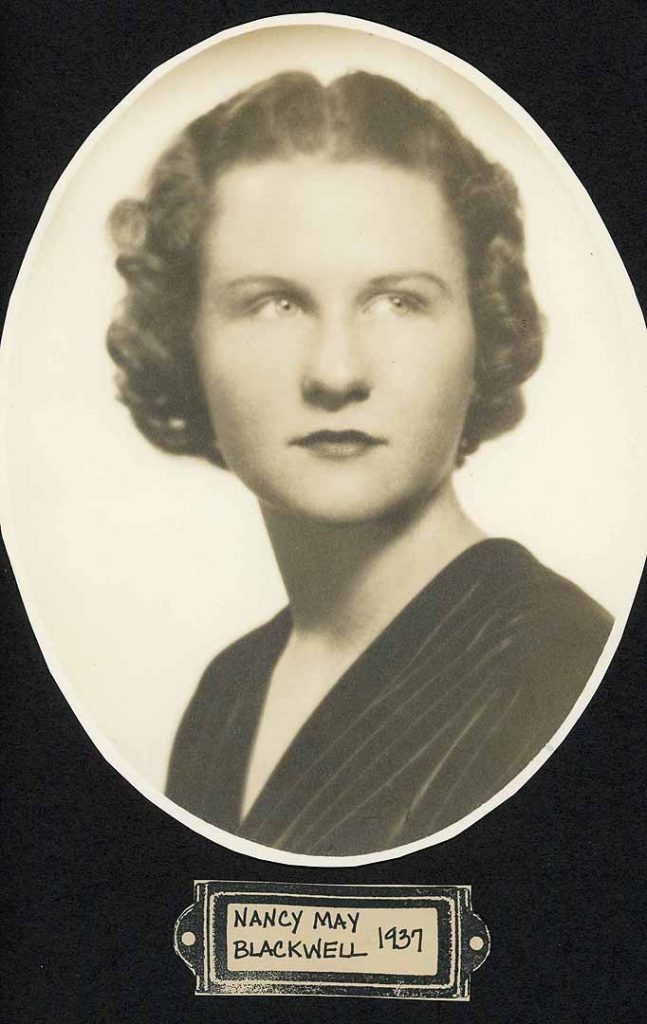
In 1941 the young couple was stationed on Maui. They were worried about the Japanese and told not to discuss any naval activities in the town either to the residents or businesses. The pre-war tension was so high that she and her girlfriend heard voices one night and ran out into the street armed with a pistol – the paranoia was that strong leading up to the attack on Pearl Harbor.
When the attack on Dec. 7 took place, the Lexington had already left Pearl two days prior. Nancy had flown home to Coronado believing Fritz was still at Pearl. The Japanese had the Lexington high on their list of targets. They actually bombed a barge they believed to be the Lexington.
Not until three or four days after the attack did she find out her husband had survived and was safe at sea. She was under the belief his ship was in the harbor during the attack and didn’t know if he was alive or dead. The good news came via a letter in the mail he had posted before departure.
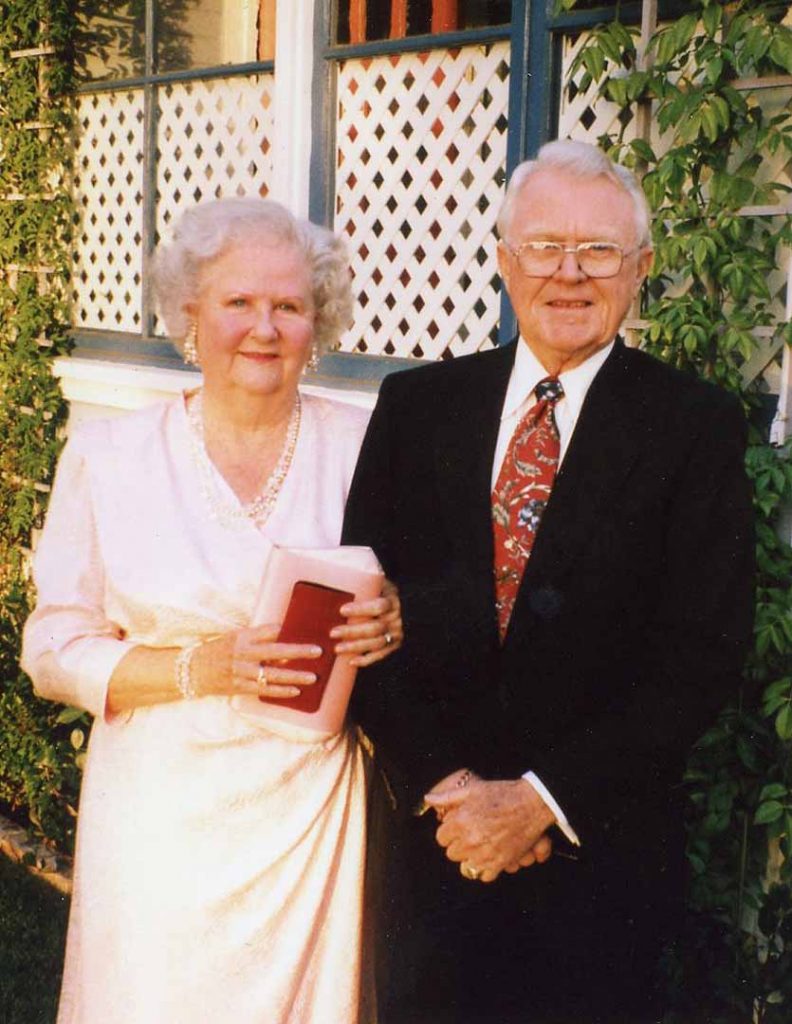
Fritz died in April 2000. Nancy continued to hold court in her Loma Avenue home, forever entertaining friends, family and neighbors with her divine memories of early Coronado and her beloved Fritz.
Nancy slowed to a mental crawl, brought on by the ravages of Alzheimer’s Disease, in the final four years of her life. She was taken care of by her daughter Carol. Six years prior to that, granddaughter Chelsea cared for her grandmother at the Loma Avenue home. After her passing, Carol and her brother Chuck shared many fond memories from their childhood.
“Mom used to always say, ‘Somewhere in the world it’s five o’clock.’ She loved her martini time,” said Carol. “She had a clock on the wall that had ‘5’ at every hour. Across the face of the clock it said, ‘I never drink ‘till 5.’”
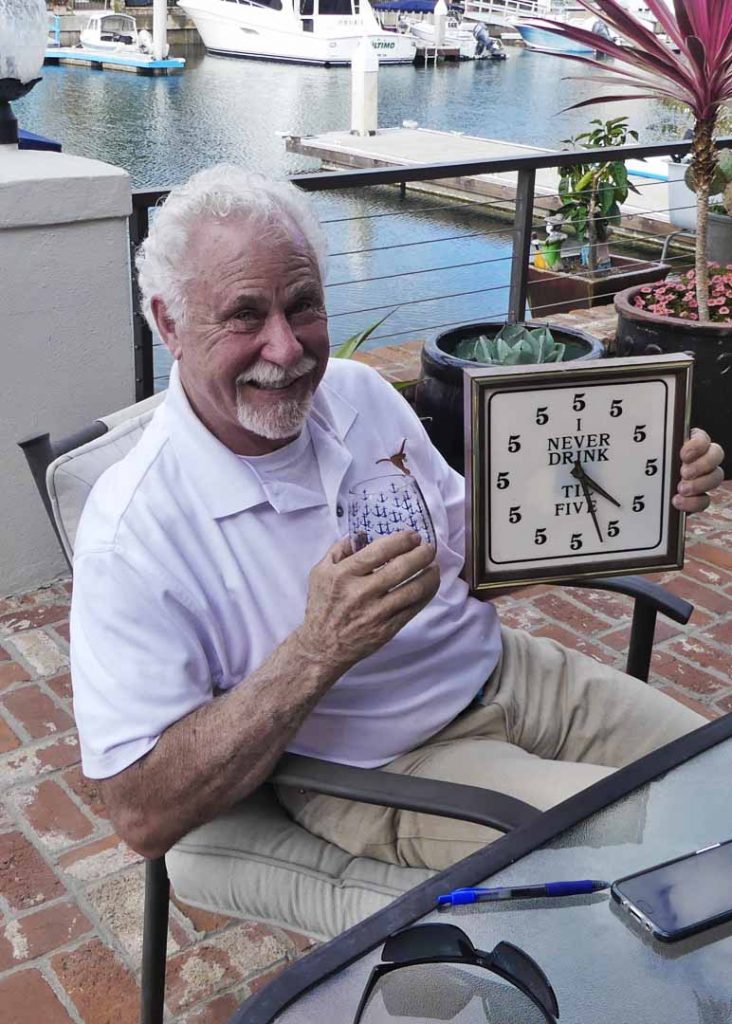
Being a navy family, they picked up and moved numerous times when Nancy’s children were young. Son Chuck recalled how his mother taught him to fight. Being the new kid in school all the time found him the target of bullies from one side of the country to the other.
“Finally, while living in Virginia, about 1949, mom took me into the backyard and taught me how to fight – how to dodge and weave, and how and when to unload the big one,” said Chuck.
“Then, she invited all five of the bullies to meet in my backyard. Mom was the referee. She had me fight them all, one at a time, until I was the last one standing. I was never bullied again.”
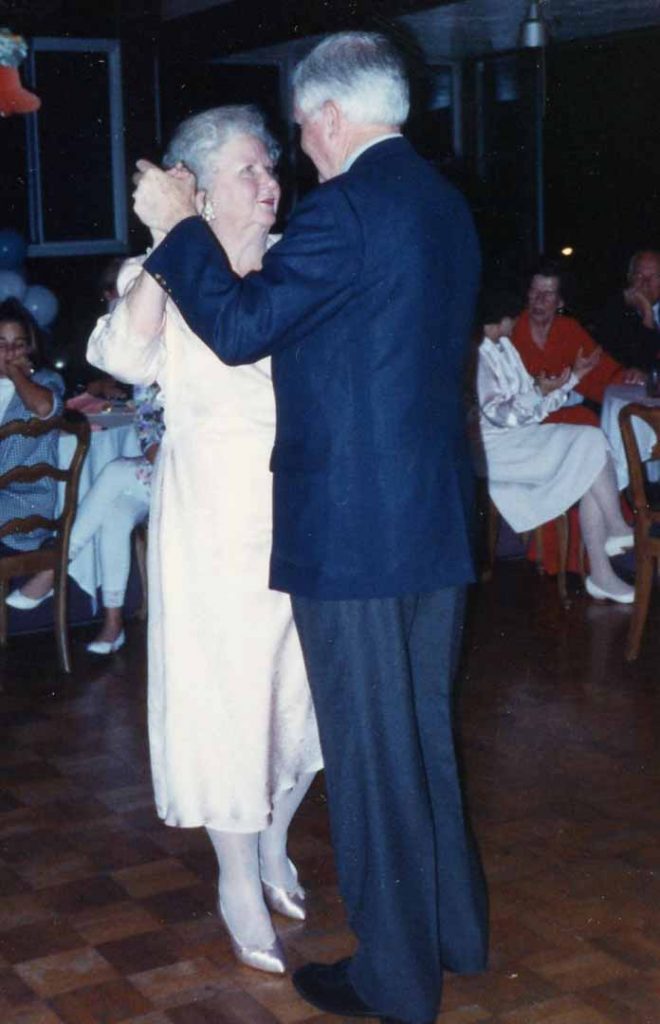
Nancy watched over her two children like the proverbial mother hen. “Mom always made sure I would get a good-night kiss when I went out on a date,” said Carol. “She would set the clock back so I wouldn’t get in trouble with my father.
“I’d be out in front of the Loma house making out with some guy, and I’d see her looking out the curtain. When I’d get in, she would say, ‘Well, was it good?’ If she hadn’t covered for me, I’m sure my dad would have gotten very mad at me. Not that it was the right thing to be dishonest to my father, but it was my mom’s nature to protect us. That was her way.
“She believed in us and wanted only the best for us. Whatever little achievements we had in high school made her very extremely proud. She’s backed us up on everything. She was an amazing woman.”

Nancy Crabill never talked bad about anyone. She accepted everyone at face value and lived a very happy life. She had a sense of humor and loved to have people around her. She helped everyone from her maid and gardener to people she met on the street who needed help. She put back into her community at every opportunity, and was very grateful in the end.
As the end grew near, and she accepted that her mind was diminishing from the Alzheimer’s, she began to make plans. She listed everything in the house, including dating all food items so the older items would be used first.
Children of the Great Depression often did such things to avoid waste. And they developed little habits, such as taking the last little piece of bread and wiping up every single crumb and droplet on their plate.
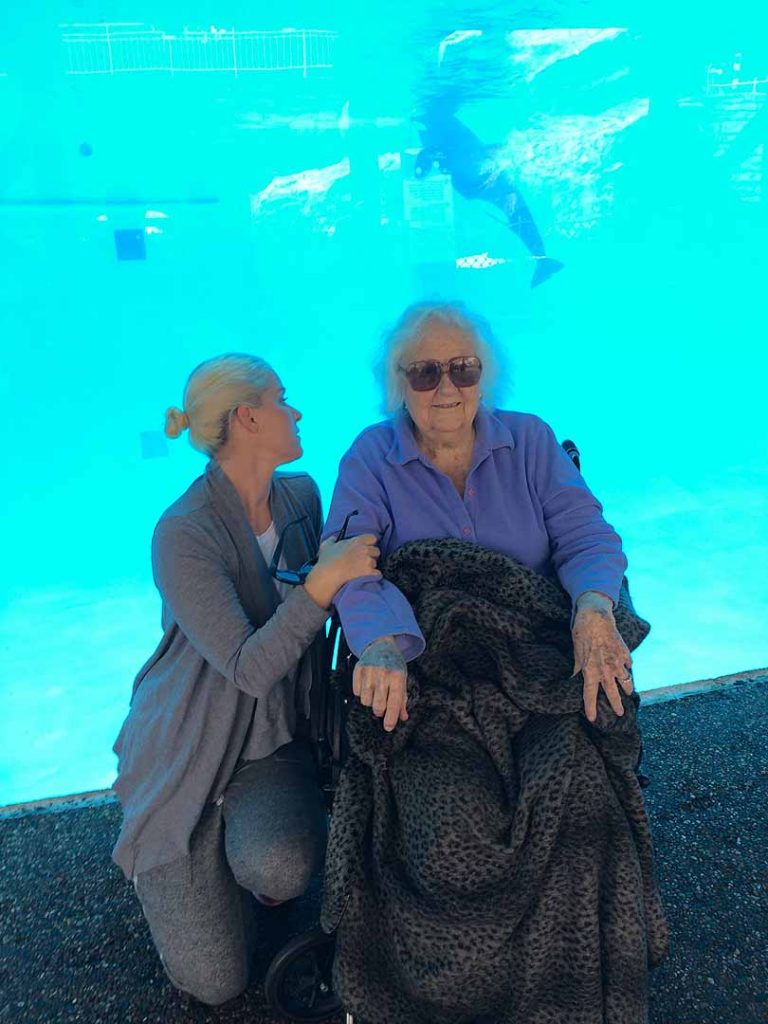
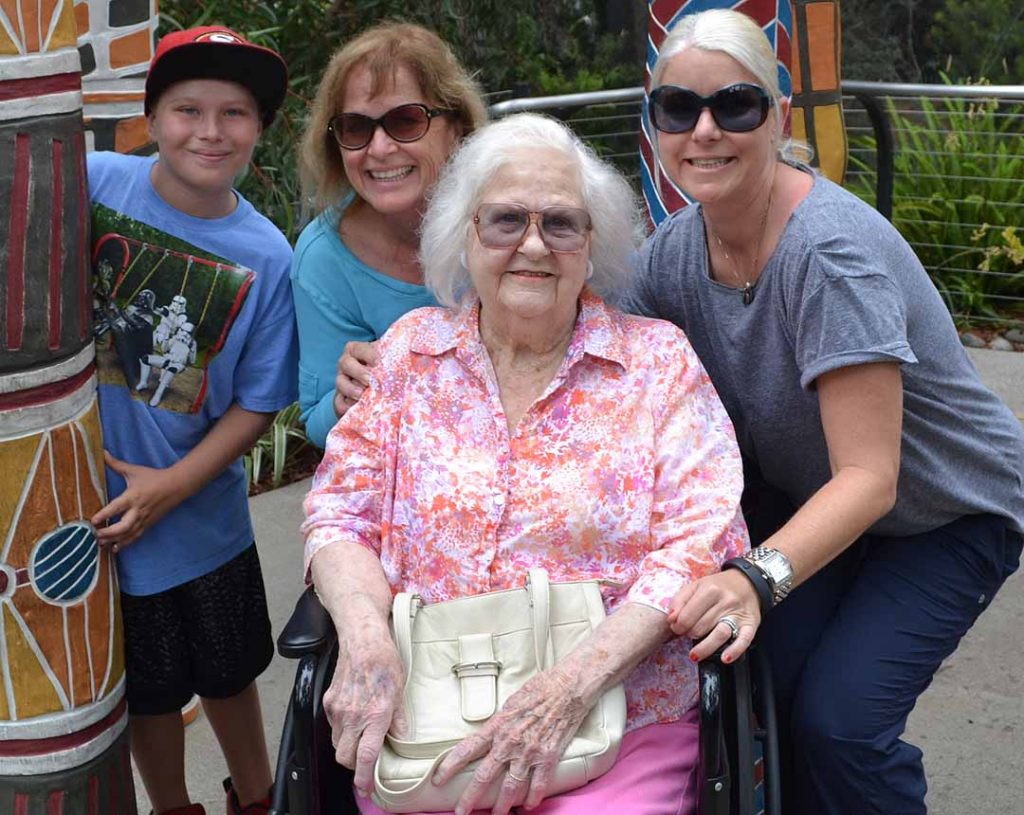
After Fritz’ passing in 2000, Nancy wrote a poem to her two children as a way of saying good-bye, not to be opened until her death. It said:
When I am gone and my ashes in an urn, When I gently fall asleep – fall asleep and awaken in Heaven.
Dearest children – do not weep, for I have had a good life.
It’s had its ups and downs, but as long as I had my martinis, nothing really got me down.
So, mix me a batch of Dad’s Martinis, And know my life has been a lark. Toast your dad and me in Heaven. At last you can tell I’m finally parked.
Remember me for my “clean” garbage – my spoiled cats, martinis and crossword puzzles.
I love you all and am so proud of every one of you.
xoxo, Mom
Throughout her long life she was active in many clubs and organizations as a navy wife, including helping raise funds for multiple sclerosis. She loved all creatures, big and small. She loved dogs and cats, and she even spared the lives of spiders and flies. She would go to great extremes to carry spiders outside to freedom. She had a heart of gold and an infectious laugh.

She is predeceased by her husband, Fritz. She is survived by her son, Charles Harvey Crabill III (Sheila) of Woodinville, WA, and her daughter, Carol Crabill-Clark (Robert) of Oceanside.
Also surviving are grandchildren Chelsea, Emily and Carl, as well as five great grandchildren.
Private services were held. The family requests in lieu of flowers, donations be made to the Helen Woodward Animal Center, 6461 El Apajo, Rancho Santa Fe, CA 92067, “In Memory of Nancy Crabill.”
Postscript: Amongst Nancy’s amazing treasure trove of scrapbooks and memories, I found her palm-sized dance card from a Coronado High School junior prom. I can only imagine that, wherever she is today, that dance card is full. Adieu, to a great lady …
[Contact: Joe Ditler, re obituaries and living-obituaries, dba Coronado Storytelling. (619) 435-0767 or [email protected]]




